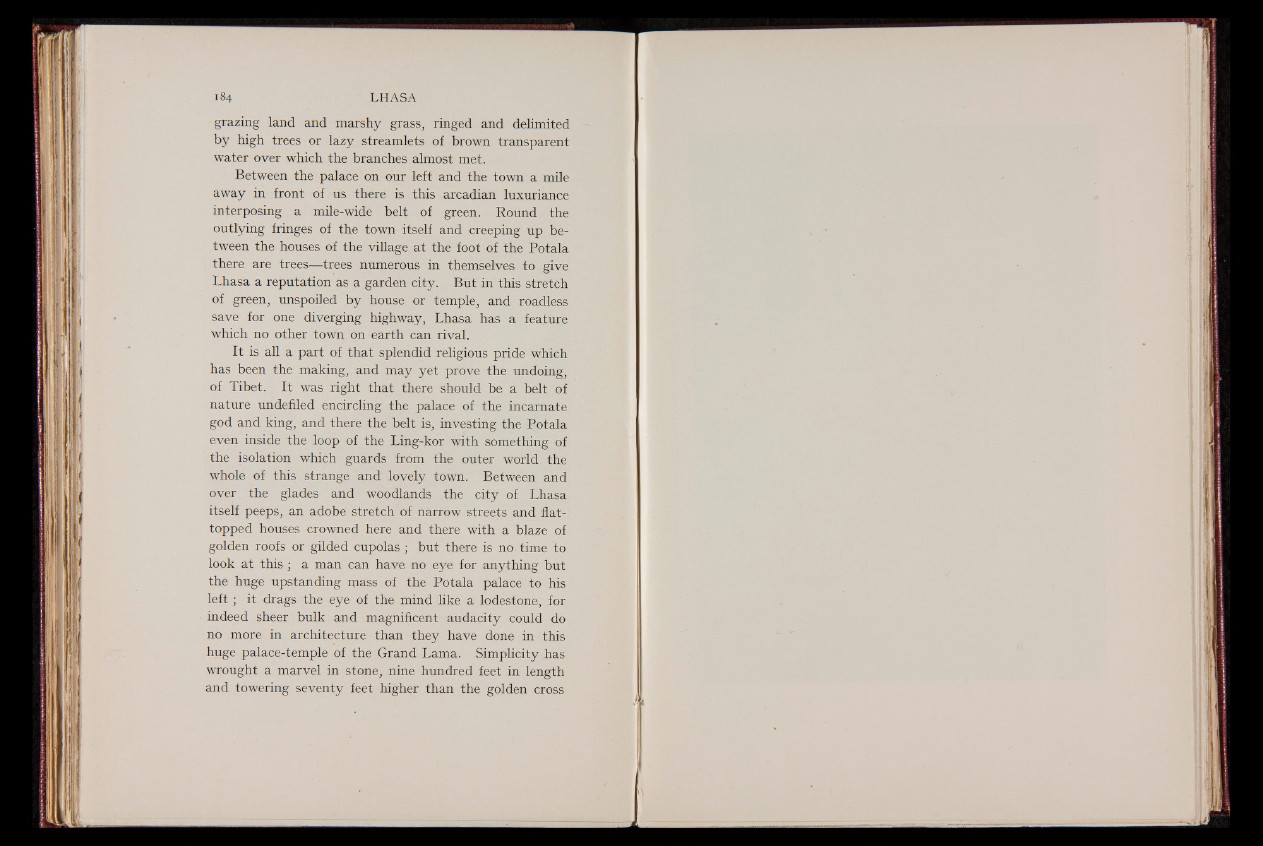
grazing land and marshy grass, ringed and delimited
by high trees or lazy streamlets of brown transparent
water over which the branches almost met.
Between the palace on our left and the town a mile
away in front of us there is this arcadian luxuriance
interposing a mile-wide belt of green. Round the
outlying fringes of the town itself and creeping up between
the houses of the village at the foot of the Potala
there are trees— trees numerous in themselves to give
Lhasa a reputation as a garden city. But in this stretch
of green, unspoiled by house or temple, and roadless
save for one diverging highway, Lhasa has a feature
which no other town on earth can rival.
It is all a part of that splendid religious pride which
has been the making, and may yet prove the undoing,
of Tibet. It was right that there should be a belt of
nature undefiled encircling the palace of the incarnate
god and king, and there the belt is, investing the Potala
even inside the loop of the Ling-kor with something of
the isolation which guards from the outer world the
whole of this strange and lovely town. Between and
over the glades and woodlands the city of Lhasa
itself peeps, an adobe stretch of narrow streets and flat-
topped houses crowned here and there with a blaze of
golden roofs or gilded cupolas ; but there is no time to
look at this ; a man can have no eye for anything but
the huge upstanding mass of the Potala palace to his
le f t ; it drags the eye of the mind like a lodestone, for
indeed sheer bulk and magnificent audacity could do
no more in architecture than they have done in this
huge palace-temple of the Grand Lama. Simplicity has
wrought a marvel in stone, nine hundred feet in length
and towering seventy feet higher than the golden cross